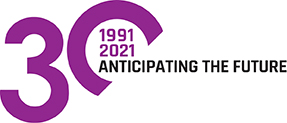- Home
- POINT OF VIEWS
HTTP-REST vs MQTT: A Comparison of the Most Critical Data Transmission Protocols in Industry 4.0
Paolo Alzalamira
R&D and Technical Manager at Dos&Donts

In the modern world, the transfer of data and information is a critical component of many industries. As such, protocols have been developed to ensure that data transfer is fast, reliable and secure. Two of the most widely used protocols are HTTP-REST and MQTT.
HTTP-REST is an acronym for Hypertext Transfer Protocol-Representational State Transfer. It is an architectural style that was designed to provide a standard for data communication between different applications. HTTP-REST has become a popular choice for building RESTful web services because it is simple, flexible and scalable.
MQTT, on the other hand, stands for Message Queuing Telemetry Transport and is a publishsubscribe based messaging protocol. MQTT is designed to be efficient, fast and lightweight, making it ideal for use in areas with limited bandwidth and low processing power, such as IoT devices.
Both HTTP-REST and MQTT have their own unique advantages and disadvantages. HTTP-REST is well suited for use in applications that require a lot of data transfer and where the data itself is highly structured. On the other hand, MQTT is ideal for use in applications where real-time data is a critical component and where data transfer must be fast and efficient.
The use of these protocols has become increasingly widespread in the context of Industry 4.0. This is because they provide a secure, efficient and scalable way to transfer data and information between different devices, systems and applications. They are also easy to integrate into existing systems and have a wide range of applications, including manufacturing, supply chain management, and energy management.
When it comes to security, HTTP-REST has the advantage of using secure authentication mechanisms, such as SSL/TLS, which provide encryption and prevent unauthorized access to sensitive data. MQTT, on the other hand, provides message level encryption, which provides an extra layer of security for critical data.
Both HTTP-REST and MQTT are essential protocols for data transfer in the modern world, and are particularly important in the context of Industry 4.0. Both protocols have their own unique strengths and weaknesses, but both provide secure, efficient and scalable methods for data transfer. The choice between HTTP-REST and MQTT ultimately comes down to the specific requirements of each application and system.





